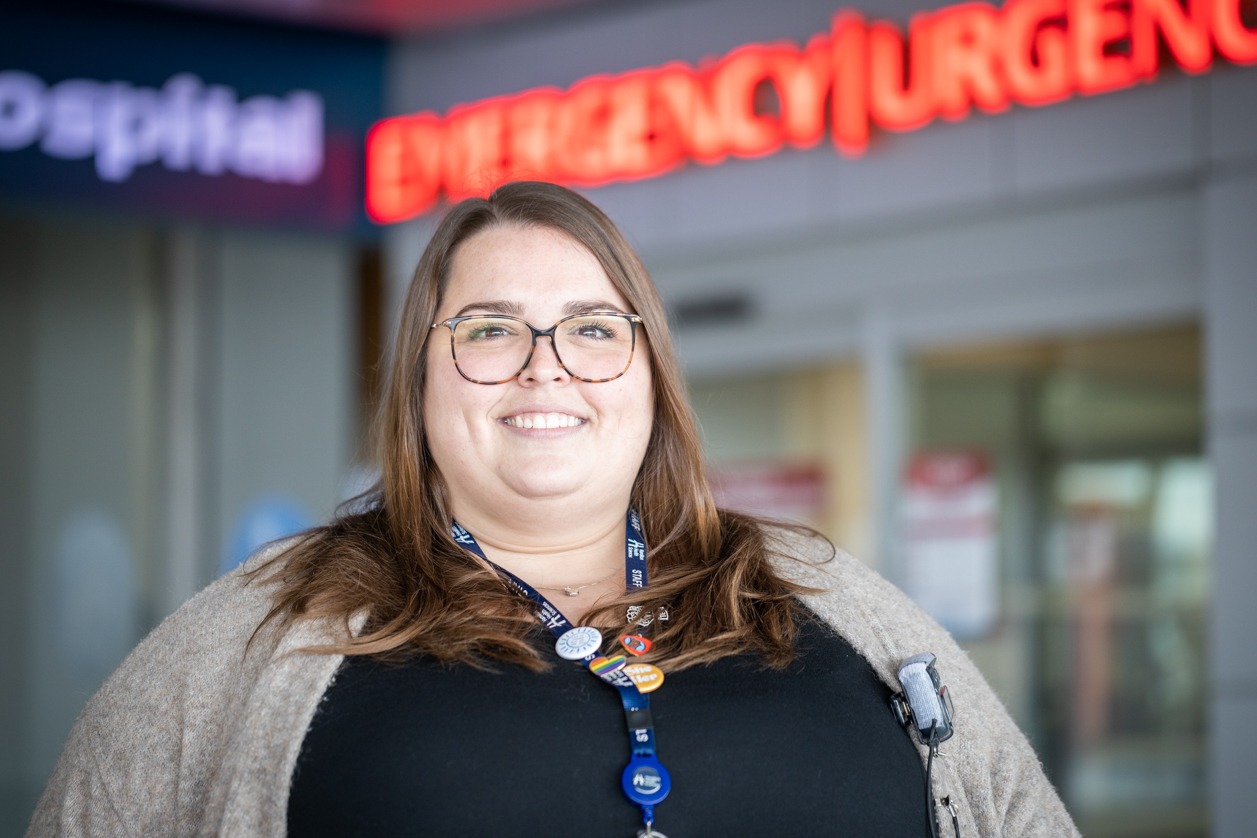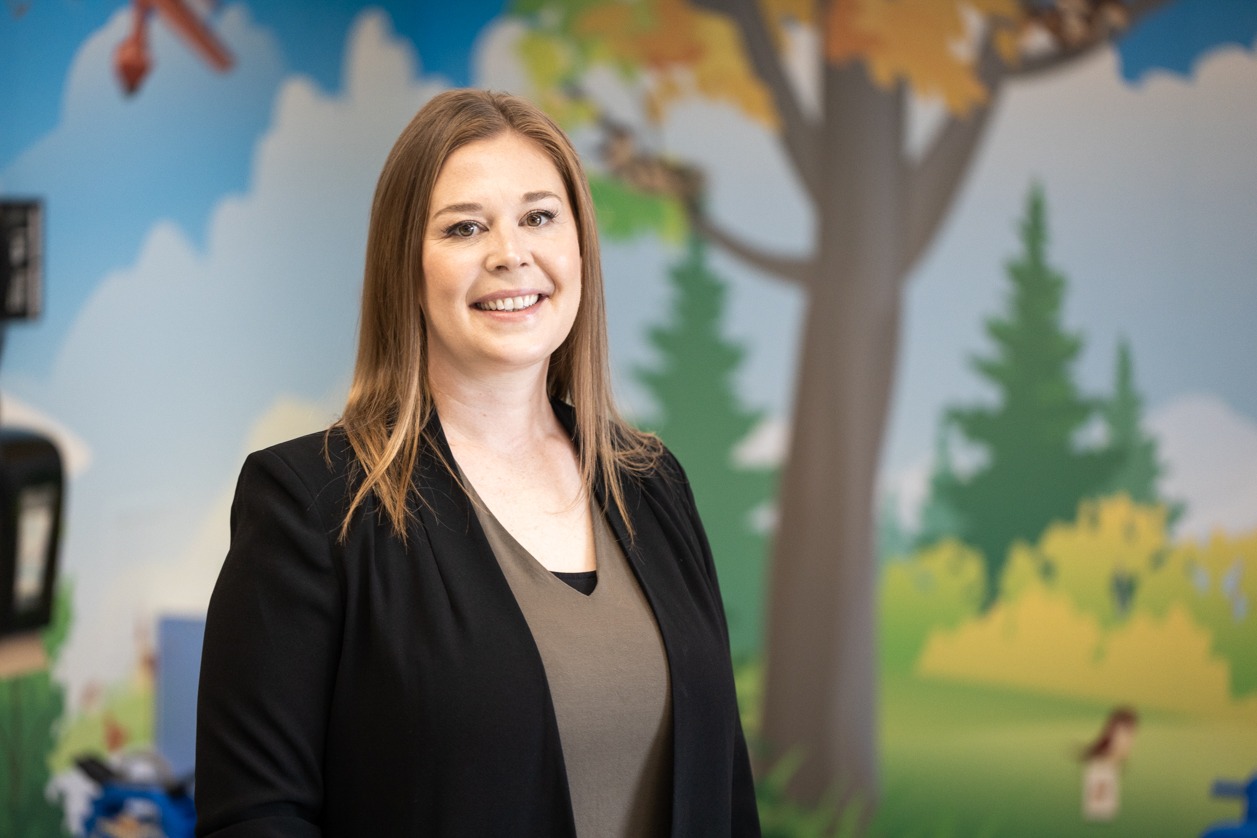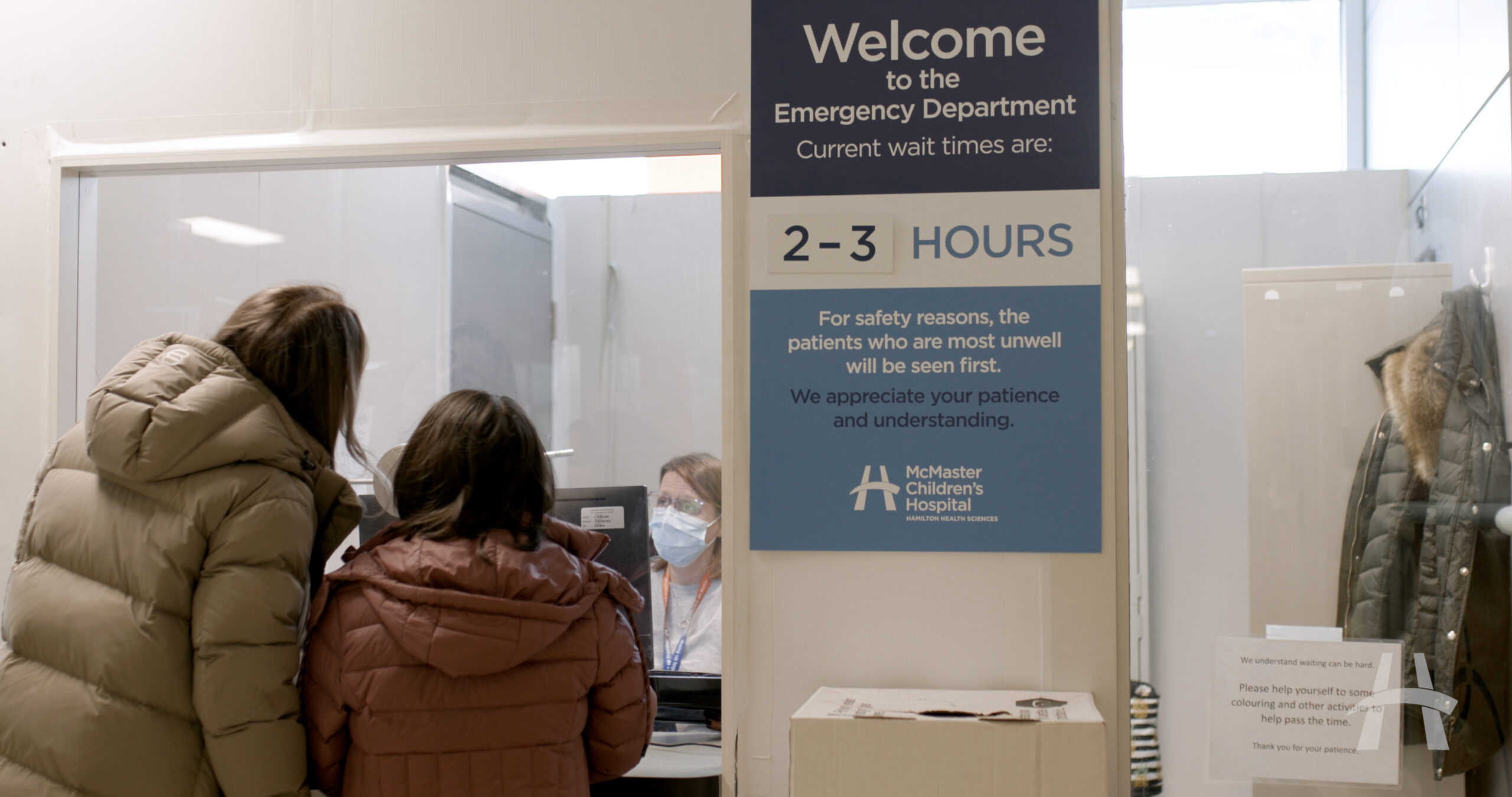
Eating disorder program grows in response to increased patient needs
During the pandemic, our eating disorder program received more than double the usual referrals and saw a spike in younger patients requiring care. The clinic at Hamilton Health Sciences McMaster Children’s Hospital (MCH) saw some patients as young as 12 who weighed less than 65 per cent of their healthy body weights.

Anick Leclerc is a dietitian who has worked in the MCH eating disorder program for 12 years and has worked in the field for over 20 years.
“We attributed the rise in admissions and referrals to the fact that young people were isolated, away from their usual activities which gave way to heightened preoccupations about nutrition, shape and weight,” says Anick Leclerc, a dietitian who has been working in the MCH eating disorders program for 12 years, and has worked in the field for more than 20 years.
So the health care team at MCH made a plan to help. The program has grown tremendously in the past few years with new staff added across services to provide more advanced care for patients.
“We expanded our inpatient unit from 6 to 8 beds to accommodate for the influx of very sick kids who needed to be admitted,” says Leclerc. “Our program has shown tremendous resilience throughout the pandemic, being physically relocated numerous times to allow for more intensive care and medical beds. Our outpatient and inpatient units moved several times to accommodate the growth.”
The MCH Pediatric Eating Disorder Program started in 2001. The program serves young patients from Niagara to Hamilton, providing comprehensive assessment and treatment. The program provides three levels of care for children and youth in the region: outpatient, day treatment, and inpatient services.
Day Treatment Program
MCH launched the Day Treatment Program in 2013 to provide a higher level of care for patients aged 13 to 17 than regular outpatient services. It accommodates 20-30 patients a year, providing intensive in-person treatment Monday-Friday.
The program’s main focus is equipping patients with coping skills, improving their tolerance to distress, and building meaningful relationships to support eating disorder recovery.

The new space features a kitchen area and a welcoming space for patients.
Unlike inpatient admissions, day treatment patients are medically stable and come to the program during the day to receive their treatment and therapy. They eat most of their meals and snacks during their time in the program, and sleep at home while continuing to work on their rehabilitation.
The program’s main focus is equipping patients with coping skills, improving their tolerance to distress, and building meaningful relationships to support eating disorder recovery.
Leclerc meets individually with day treatment patients once or twice a week to discuss progress, nutrition, and meal planning. She participates in meal support activities a few times a week and plans food exposures and outings when patients face challenges with consuming difficult foods and navigating different meal environments. Additionally, she reviews lunches brought from home three times a week.
She also facilitates several groups in the day program, including a nutrition group where patients learn to counter nutrition myths and misleading information.
“We discuss the fundamentals of nutrition and why our bodies need specific nutrients to survive, and how our bodies work at their best and maintain healthy weights all while eating many types of food,” she says.
Provincial investment means better care
Last July, the Ontario government announced a $330 million investment in pediatric health care to reduce wait times and improve care for children and teens across the province. Combined with other investments over the past 18 months, MCH is receiving over $48 million in new, ongoing funding to grow spaces, services and staff.
“The team and I were pleased to hear about the provincial funding to grow MCH that will help expand essential care, including inpatient, day treatment, and outpatient services,” says Leclerc. “With additional team members, we’re able to work more effectively with patients and their families, and stay true to our treatment model.”
Leclerc adds, “With the addition of a part-time registered dietitian on the inpatient unit, I’ve been able to invest more of my time in the day treatment program and outpatient services. Now, we can provide more comprehensive care to patients and their families.”
Better spaces for patients

Words of affirmation to help create a positive space for patients.
While keeping up with growing teams, the program’s physical spaces have also been growing to better suit patients’ needs. The day program was recently moved away from the inpatient unit, to a separate location on the third floor of MCH.
“For years, the day treatment team has been dreaming of a separate space of our own, away from the inpatient unit,” says Leclerc. “It’s important for patients and staff to have separate spaces, as it can be difficult for day treatment patients to be on an inpatient unit. Being in that environment may trigger memories and increase eating disorder thoughts and behaviours, especially if they were admitted previously for medical instability.”
Leclerc explains, “Now, we have our own kitchen and bathroom, which may seem like small things, but they help us manage our time better between meals and group activities. The ability to use our own kitchen has been incredibly helpful in planning challenging food exposures, engaging in baking and food preparation activities, and offering a wider variety of food and beverage options to our patients.”

Motivational books and sensory items to help de-stress.
Growing the team in the eating disorder program has allowed staff to focus better on their role and offer expert services to patients and their families. “Additional staff also means better coverage for things as simple as breaks or to make a call to a family, better communication and decreases burnout,” says Leclerc.
“My work is very diverse and includes being part of a wonderful, multidisciplinary team.”
A “tight-knit” village
Like many other subspecialty programs, the eating disorder program benefits from a multidisciplinary team and offers a wide range of services and expertise. “As team members, colleagues, and friends, we support each other to offer the best patient and family care to our clients. You know the expression ‘it takes a village’? Well, we are a tight-knit village here.”



